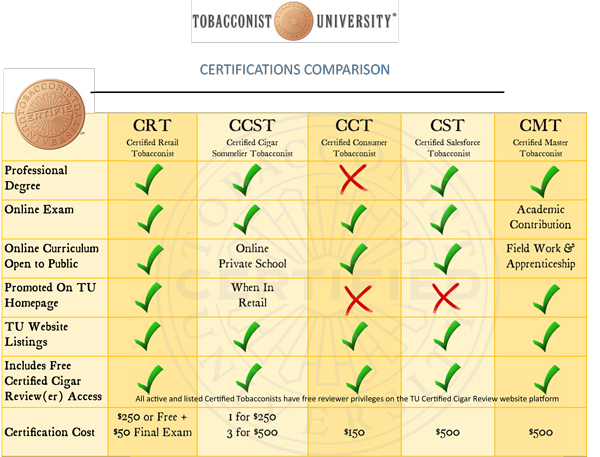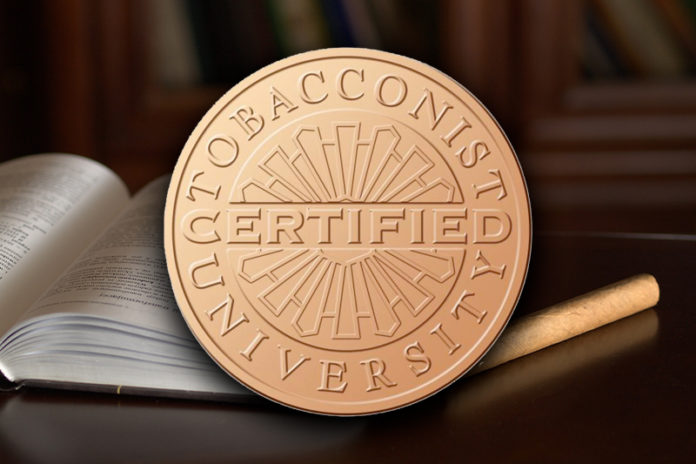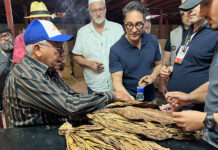Despite the increase in regulations, the cigar industry is showing no signs of slowing down anytime soon. A recent report published in Bloomberg revealed that the Dominican Republic had seen an increase in cigar exports in 2020. A recent retail survey conducted by Tobacco Business in the past year also revealed that many retailers saw an increase in sales in 2020 despite the ongoing COVID-19 pandemic, and that for many tobacco retailers, premium cigars were the dominant product category in their stores. These are just a few reasons why the industry is seeing an influx of new tobacconists, or dealers of tobacco and related accessories and products.
New businesses are entering into the cigar product category each day. For some, cigars are complementary to their core business. For example, Total Wine and ABC Fine Wine & Spirits both specialize in spirits, but in recent years they have extended their businesses to premium cigar products with the addition of walk-in humidors. Other retailers, such as Shop Rite, have added premium cigars to their stores. Cigars being sold as add-ons within stores is increasing at a breakneck pace, also leading to an increase in new tobacconists that may not always be familiar with the cigar industry or its products. That’s where Tobacconist University hopes to help with its Certified Cigar Sommelier Tobacconist (CCST) certification program, which is designed for these non-traditional retailers and their unique businesses and clientele.
The CCST degree was inspired by a real need for professional and consumer education. According to Tobacconist University founder Jorge Armenteros, the CCST degree program arose out of the need to ensure that people selling premium cigars did not do the products a disservice.
“There are innumerable gas stations, bodegas, markets and businesses selling cigars that hurt the industry and consumers because of their ignorance,” Armenteros said. “While we would prefer that manufacturers not sell to such businesses, we have no recourse. Ultimately, we wanted to give the industry a better option that was streamlined and affordable and would also help their businesses. With our vision to build and project the credibility of the luxury tobacco industry, we had to do something to improve the retail experience for consumers, and from that desire came the CCST degree.”
Tobacco Business: What is a Certified Cigar Sommelier Tobacconist? Who should consider obtaining this level of certification?
Jorge Armenteros: Tobacconist University’s Certified Cigar Sommelier Tobacconist (CCST) degree is designed to serve the hospitality industry, which includes fine dining establishments, golf and country clubs, event promoters, cigar clubs, casino lounges, and wine/liquor/cocktail bars and stores. The curriculum and final exam are tailored to meet the service needs of these organizations and customers. CCSTs are not typically full-service retail tobacconists, but rather they provide luxury cigars as a service enhancement to their customers. To that end, the CCST degree focuses on product fundamentals, upselling and service processes. The CCST degree exists to improve appreciation, customer service and sales.
Our CCST degree is a professional degree that ensures the student gets a strong fundamental education in premium cigars. Interestingly, because it is a professional degree, we have seen many people in varied niches pursue the degree. There are many event coordinators, beverage reps, vloggers and hobbyists who have pursued the certification. To our surprise, the CCST degree has become an excellent credential for many more industrious consumers and professionals than we ever imagined or intended it for.
With that said, it is important to note that the CCST degree is not nearly as challenging as our Certified Retail Tobacconist (CRT) degree. Our CRT degree is the hardcore, deep-dive, full-spectrum, most professional program in existence for retail tobacconists, but this level of education is not for everybody. So the CCST degree serves an important niche for others.

Tobacconist University offers Cigar Sommelier Schools. What are these schools and how can tobacco retailers and businesses use them to their advantage?
Businesses are already challenged by having to train their employees on their point-of-sale systems, cleaning, inventory management, maintenance and selling, among other things. Product knowledge and training take even more time and money to teach, so our CCST School takes that burden off of the business and empowers the employees. Having the ability to direct your employees to your CCST School takes a huge burden off of your hands and frees you up to do the things you need to do to make money and pay the bills. That’s why we say the CCST program pays for itself on day one and exponentially increases your revenue by creating trained professionals very inexpensively.
How does the curriculum for the CCST program differ from the other certifications Tobacconist University has to offer?
The structure and design of our CCST program is completely different from our other degrees. The CCST educational content is derived from our broad academic curriculum, but it is streamlined and distilled. It is also located behind a paywall, so the company who purchases the CCST School has a level of customization and branding tailoring the school to their employees.
The CCST School is divided into the Retail School, Pairing School and Cigar Fundamentals. Our Cigar Fundamentals curriculum is more than two hours of video and narrated slideshow content, which makes studying easier for many. In terms of the school structure, once a company purchases their school, they can send their employees “inside,” where they sign up as apprentices.
Once they become a CCST apprentice, they get their listing on our website—a proof of participation—and they can take the final exam when they are ready. There is no penalty for failing the exam, so they can take it again. Once the student passes, their listing gets updated and customized with their logo, and it rotates on our homepage along with our other professional tobacconists. As always, we want to promote substantive and credentialed professionals.








